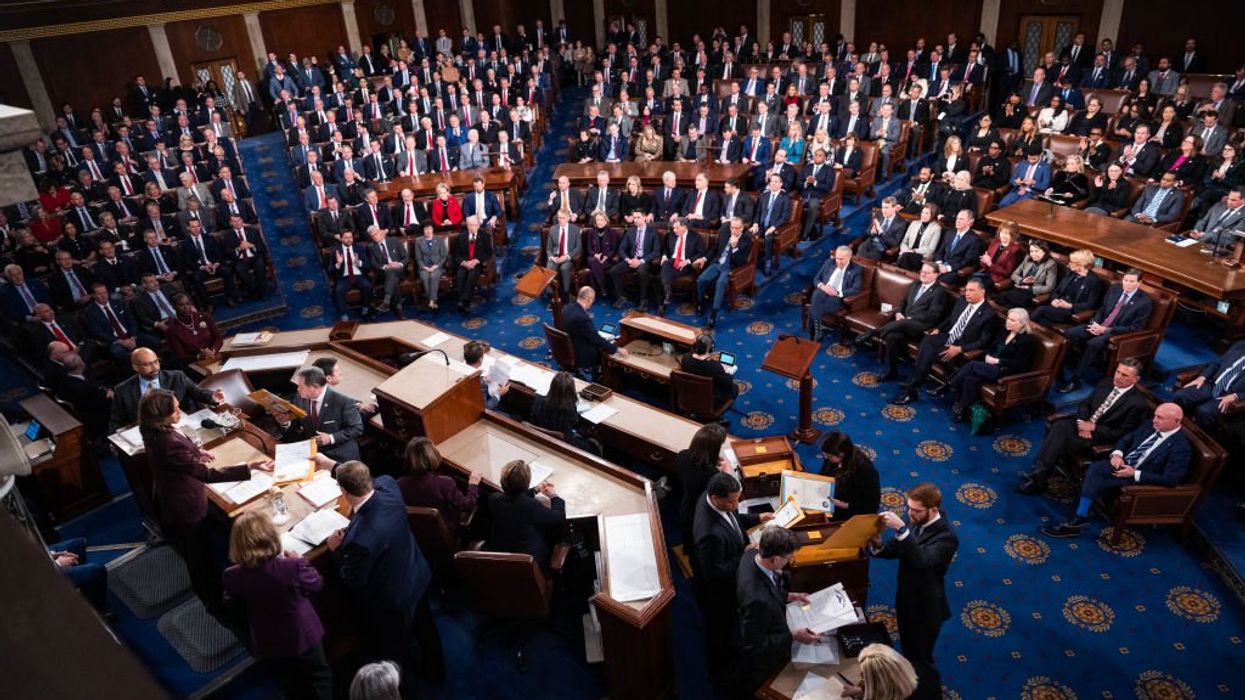When the 119th U.S. Congress was sworn in, some newly elected women members made history.
Emily Randall, from Washington’s 6th Congressional District, is the first out LGBTQ+ Latina. Lisa Blunt Rochester and Angela Alsobrooks are the first Black senators to represent Delaware and Maryland, respectively — and the first two Black women to ever serve concurrently in the upper chamber. Sarah McBride, from Delaware’s at-large House district, is the first transgender member of Congress. All are Democrats.
But for the first time since 2011, the number of women serving in the Senate and House of Representatives declined.
While Democrats sent a record 110 women lawmakers to Congress, Republicans elected just 40 women across both chambers. (On Election Day, 151 women were serving.) In addition, at least one Republican, Rep. Elise Stefanik of New York, who was also the only woman serving in GOP House leadership, is expected to resign if she is confirmed as ambassador to the United Nations in the incoming administration of President-elect Donald Trump.Kelly Dittmar, director of research at Rutgers University’s Center for American Women and Politics, said that while the drop in the number of women in Congress is small, “any decline when we’re talking about women’s representation is effectively slowed or stalled progress because women are already so underrepresented in Congress.”
It’s also a reminder, Dittmar said, “that we cannot assume that women are just going to continually increase their representation past parity, that we have to keep a focus not only on women’s success but women’s candidacies, recruitment, and candidate emergence.”
150 women were sworn into the 119th Congress, representing 28 percent of the total number of lawmakers across both chambers. Twenty-five of these women — 16 Democrats and nine Republicans — serve in the Senate, holding one in four seats of the 100-seat upper chamber. The House of Representatives has 125 women — 94 Democrats and 31 Republicans — who make up about 29 percent of the 435-seat lower chamber, according to a CAWP analysis.
Among the non-incumbent women in Congress, only two are Republicans; Dittmar called it a “clear tell” about the status of women in the legislative body.
“It’s always going to be harder to get there [to parity] if Republican women’s representation remains so low. We saw the issue at the start of this campaign … in terms of the drop in candidacies for Republican women that persisted,” Dittmar said. “And then we’re going to see it really starkly as it pertains to their power, both in the percentage of the caucus, as well as the percentage of committee chairs, which is going to be zero in the House for Republican women.”
Republicans control both the Senate and House and, therefore, hold all committee gavels. Some Democratic women in the House serve as ranking members, the top spot for the minority party on each panel.
GOP Rep. Lisa McClain of Michigan replaced Stefanik as the House Republican Conference Chair and is expected to be the only woman serving in a party leadership role. In the Senate, Sen. Shelley Moore Capito of West Virginia leads the Republican Policy Committee, the only woman in the top role since Sen. Joni Ernst of Iowa lost her race for Republican conference chair.
Jessica Mackler, the president of EMILYs List, a group that works to elect Democratic women who support abortion rights, said the organization backed all 19 of the new Democratic women joining Congress. These include women who are a “first” of some sort, like Arizona’s Yassamin Ansari, the first Iranian-American Democrat in Congress; Janelle Bynum, the first Black member of Congress to represent Oregon; and Nellie Pou, the first Latina to represent New Jersey.
“The perspectives that women bring, whether that’s their professional perspectives, their personal perspectives, their background, they bring that into the halls of power, and that allows them to put a face and a voice to the way in which these policies are going to impact people across the country. Our government can’t work at its best if it doesn’t reflect the American people as a whole,” Mackler said.
Mackler also anticipates that Democratic women will play prominent roles opposing Trump administration policies, many of which could have gendered impacts on women and LGBTQ+ people.
“The perspectives that they are bringing are going to be critically important to the fights that we have ahead of us,” Mackler added.
The 119th Congress: Some history makers, but fewer women overall was first published by The 19th, and republished with permission.
Amanda Becker is The 19th's Washington Correspondent.




















Trump & Hegseth gave Mark Kelly a huge 2028 gift